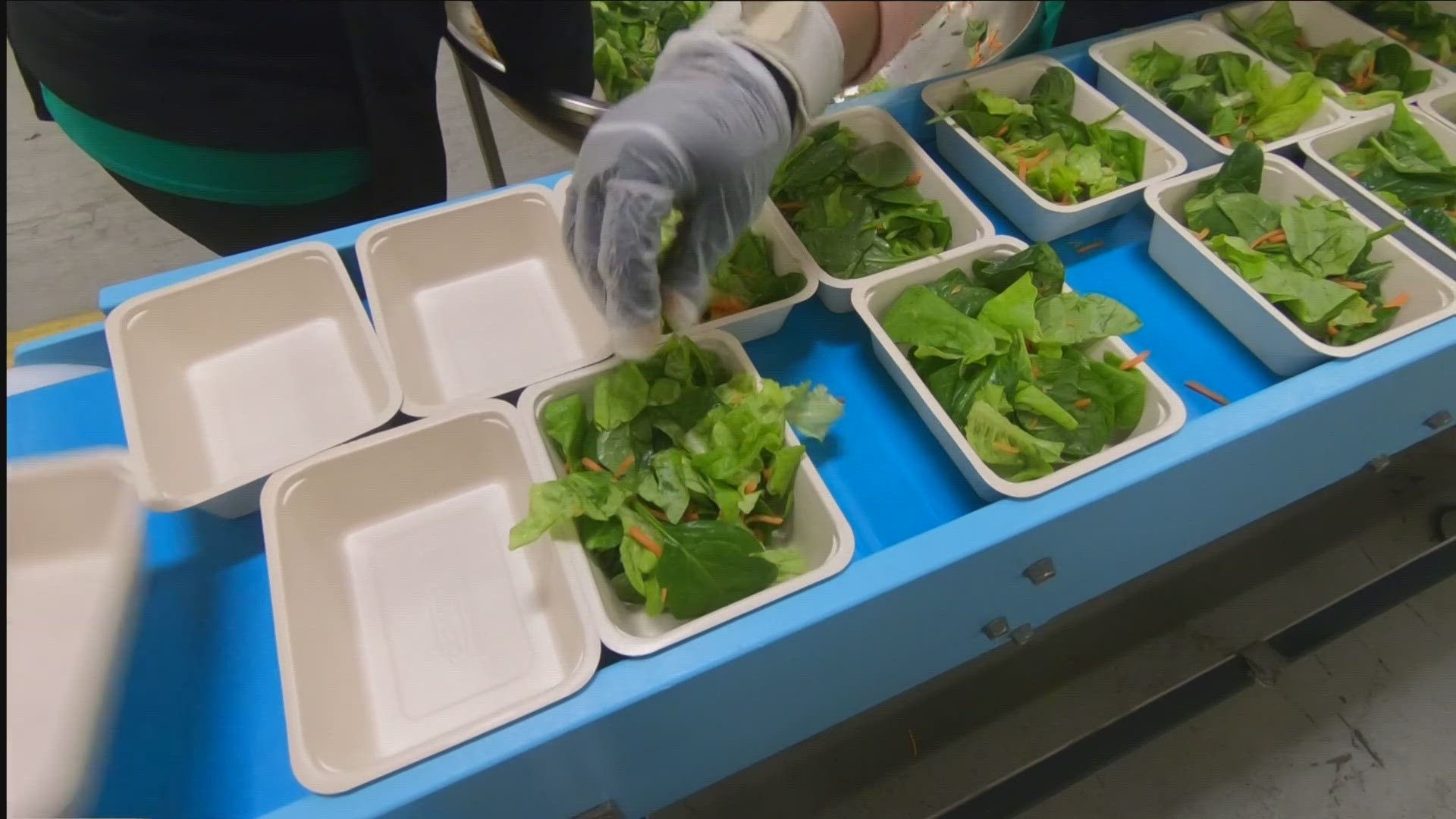BUFFALO, N.Y. — Is getting more New York-produced food products into public schools worth the cost of reimbursement?
That was the question asked by researchers at Cornell University who looked at farm-to-school programs, specifically in the Buffalo Public School District.
What they found is that for every dollar spent by the state, one dollar and six cents of GDP were expected to be returned, meaning the program had a slight economic benefit.
“What we're putting in we're getting out and a little bit more and I think that's an important message looking forward to the continuation of these types of programs,” said lead author Todd Schmit, an economics professor at Cornell.
BPS has been involved in the NYS Department of Agriculture and Markets’ 30% Initiative for going on six years, which gave researchers plenty to work with.
Buffalo is also the largest eligible district that purchases at least 30% of their food products from New York sources. An item qualifies if it is grown, harvested, or produced in the state, or if the item contains at least 51% raw materials grown, harvested, or produced in the state.
Every week employees at the BPS commissary clean, cut, and package lettuce grown just 25 minutes south of the city.
When 2 On Your Side toured the facility last Thursday, Ruth Conner the District’s Director of Food Service said the lettuce was grown by Kenneth Henry Sons Inc. and delivered by Eden Valley Growers.
“The hydroponic has been great because it's available year-round,” said Conner.
Conner and her team have made sure Buffalo Schools serve at least 30% percent of New York products to students.
She explained that dairy products like cheese, milk, and yogurt make up the vast majority of that percentage. Seasonal fruits, vegetables, and other products make up the rest.
“It's a lot of work but it is so worth it. It is so rewarding,” Conner said.
Districts that meet the threshold are reimbursed at 25 cents per lunch served instead of 5.9 cents.
The result of that 19-cent difference was Buffalo Public Schools was reimbursed for $833,000 last year according to Cornell Farm-to-School Program Work Team co-chair Cheryl Bilinski.
“It's really is full circle when you can see that product grown 20 miles south in the case of Buffalo show up on a school lunch and be able to educate a student,” Bilinski said.
“It's so much more than 19 cents a meal,” said the district’s Food Service Director.
Conner explained that beyond providing good food for students, they’re also teaching kids about the food system.
She said many are surprised to learn that the potatoes, onions, and other produce they eat for lunch are grown so close to home.
“And say hey this butternut squash was grown in Eden, New York, and where is Eden, how far away from that is Buffalo so talking and bringing awareness to that,” said BPS Farm-to-School coordinator Felicia Gane.
Gane, while new to her post, is not new to the world of finding new food options.
She explained that because of Buffalo Public Schools’ relationship with producers and their significant buying power, the district can influence and uplift a supply chain.
“We're really approaching this program as a benefit to our NY farming community,” Cornell’s Cheryl Bilinski said.
Those relationships can even lead producers to offer new options to the district. Gane explained that recently Eden Valley Growers included New York tofu as an option.
It wasn’t an item BPS bid for but could be incorporated as a plant-based protein source in the future.
With BPS in the middle of a new commissary project, Conner added that these findings also support the district’s vision of being able to process even more New York items in a new and better-equipped space.

